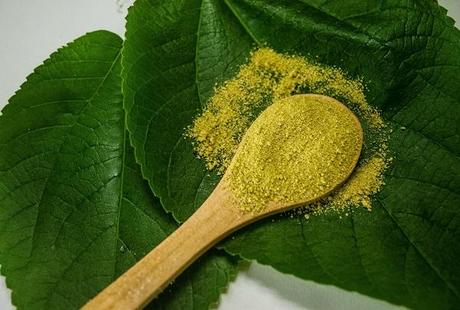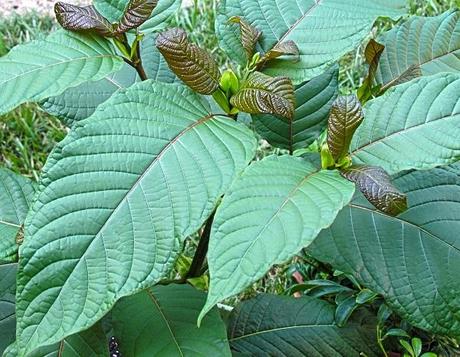
Introduction: In recent years, the interest in alternative and natural remedies has grown significantly. People are turning to herbs and plant-based solutions to support their overall well-being. Among the various herbal remedies available, Kratom has gained popularity for its potential health benefits. This article will explore the top 10 herbs, including Kratom, and delve into the science behind their potential wellness-enhancing properties.
- Turmeric: The Golden Healer Turmeric, a vibrant yellow spice commonly found in curry dishes, contains curcumin, a powerful compound with anti-inflammatory and antioxidant properties. Curcumin has shown potential in supporting joint health, cognitive function, and heart health. Adding turmeric to your daily routine may help alleviate symptoms of inflammation and oxidative stress.
- Ginseng: The Energy Booster Ginseng has been used in traditional Chinese medicine for thousands of years due to its stimulating effects on the mind and body. It is believed to enhance mental clarity, reduce stress, and boost energy levels. Ginseng is available in various forms, such as Asian ginseng and American ginseng, each with its unique properties.
- Ashwagandha: The Adaptogenic Herb Ashwagandha, an adaptogenic herb widely used in Ayurvedic medicine, helps the body cope with stress and anxiety. It may also support improved sleep quality, enhance cognitive function, and promote overall vitality. Research suggests that ashwagandha modulates the body’s stress response by regulating cortisol levels.
- Echinacea: The Immune Booster Echinacea is a popular herb known for its immune-boosting properties. It has been traditionally used to prevent and shorten the duration of common colds and respiratory infections. Echinacea stimulates the immune system, promoting the production of white blood cells and antibodies that fight off pathogens.
- Chamomile: The Soothing Herbal Tea Chamomile, a gentle and calming herb, has been used for centuries to promote relaxation and alleviate anxiety. It is commonly consumed as a tea and may aid in reducing insomnia, digestive discomfort, and menstrual cramps. Chamomile contains compounds like apigenin, which interacts with receptors in the brain to induce a sense of tranquility.
- Lavender: The Fragrant Stress Reliever Lavender, with its distinctive aroma, is renowned for its calming and stress-relieving properties. Inhaling lavender essential oil or using lavender-infused products may promote relaxation, improve sleep quality, and relieve anxiety symptoms. Additionally, lavender oil has shown potential in reducing headache severity and promoting skin health.
- Peppermint: The Digestive Aid Peppermint is a refreshing herb widely recognized for its digestive benefits. It helps alleviate symptoms of indigestion, such as bloating and gas. Peppermint oil contains menthol, which relaxes the muscles of the gastrointestinal tract, providing relief from spasms. Additionally, peppermint tea may aid in soothing headaches and reducing fatigue.
- Lemon Balm: The Mood Enhancer Lemon balm, a member of the mint family, has a lemony fragrance and is commonly used to uplift mood and reduce stress. It may help improve cognitive function, promote relaxation, and support better sleep. Lemon balm tea or extracts can be consumed to reap its potential benefits.
- Ginger: The Digestive Comforter Ginger, a widely used spice, has been revered for its digestive and anti-inflammatory properties. It aids in relieving nausea, soothing upset stomachs, and reducing inflammation in the body. Gingerol, the main bioactive compound in ginger, has potent antioxidant effects that may contribute to overall well-being.
- Kratom: The Versatile Herbal Wonder Kratom, derived from the leaves of the Mitragyna speciosa tree, has been used traditionally in Southeast Asia for centuries. It contains alkaloids that interact with the body’s receptors, potentially providing pain relief, relaxation, and energy-boosting effects. However, it’s important to note that the regulatory landscape for Kratom is still evolving, and more research is needed to fully understand its benefits and potential risks.

Kratom – What is it and How Does it Work?
Kratom, known by its scientific name Mitragyna Speciosa, is a tropical plant from Southeast Asia. Due to its unique properties and effects on the mind and body, Kratom has gained popularity among people looking to achieve various physical and psychological results. Kratom interacts with the brain’s cells, affecting the receptors responsible for mood regulation and pain management. It contains two active alkaloids, Mitragynine, and 7-hydroxymitragynine, which have a similar effect to opioids but with a much milder impact.
As a result, Kratom is often used to relieve chronic pain, anxiety, and depression, and it has been reported to help individuals manage their various addiction-related issues. Even though Kratom is gaining popularity, there are essential things to consider before trying it. As with any supplement or medication, it’s always crucial to speak with a healthcare professional first.
Benefits of Kratom for Health and Well-being
Borneo Kratom is a specific type originating from the Indonesian island of Borneo. It has become increasingly popular due to its high-quality effects and potential to help with various health concerns. This particular strain is one of the most potent types, containing higher concentrations of 7-hydroxymitragynine than other varieties.
Some reported benefits include: improved mental clarity, increased energy levels, enhanced moods, reduced stress levels, pain relief for chronic conditions such as arthritis or fibromyalgia, and more. Many people also use Borneo Kratom as an effective way to alleviate symptoms associated with opioid withdrawal and addiction.
Exploring Natural Alternatives to Synthetic Drugs
In addition to Kratom, many natural remedies can support a holistic approach to health and well-being. Herbal supplements such as turmeric, ginger, curcumin, and chamomile have all been reported to positively affect mental and physical health.
These natural substances often contain potent antioxidants and anti-inflammatory compounds, which can help reduce pain associated with chronic conditions, improve moods, improve digestive functioning, and more. Many herbs can be taken in tea or tincture form for added convenience. It’s essential to research the various types of herbs available before selecting one that is right for you.
Applying Herbalism Knowledge to Daily Life
Herbalism is a powerful practice used for centuries to maintain good health. Combining Kratom and other natural remedies allows us to experience both the physical and mental benefits of herbalism at home or in professional settings.
Whether you’re looking for pain relief, anxiety management, improved moods, or general well-being – herbs are an excellent way to achieve these goals. Knowing your own body and researching different herbs before trying them out is essential, as each person will respond differently depending on their needs. With the right approach, herbalism can become integral to your daily life and help you live healthier and happier.
In Conclusion
Exploring the world of herbs and natural remedies opens up a treasure trove of wellness-enhancing possibilities. Kratom, turmeric, ginseng, ashwagandha, echinacea, chamomile, lavender, peppermint, lemon balm, and ginger are just some of the herbs that offer potential health benefits. However, it’s crucial to consult with healthcare professionals before incorporating these herbs into your routine, especially if you have underlying medical conditions or are taking medications. Remember, a holistic approach to wellness considers both traditional wisdom and scientific evidence to nurture overall well-being.
Kratom is just one of many natural remedies that can be used to achieve improved health and well-being. By understanding the various benefits, dosing amounts, routes of administration, and safety guidelines associated with Kratom use – one can confidently experience the positive effects this herbal remedy offers.
Combining Kratom with other natural remedies is an effective way to support holistic health and healing on both a physical and mental level. With the right approach, herbalism can become integral to your daily life and help you cultivate a more balanced lifestyle.

